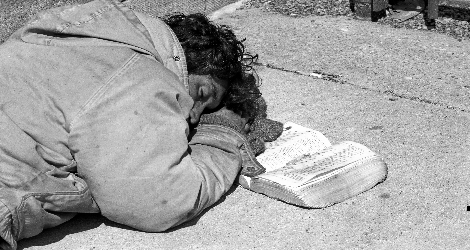Liberation: Where it all begins
At the heart of Hebrew theology and self-understanding is the exodus—liberation from slavery in Egypt. The memory and identity of the Hebrew people is recited in the ancient liturgical text preserved in Deuteronomy 26:5b-10. It is among the very oldest passages in the Bible:
A wandering Aramean was my ancestor: he went down to Egypt and lived there as an alien, few in number, and there he became a great nation, mighty and populous. When the Egyptians treated us harshly and afflicted us, by imposing hard labor on us, we cried to the Lord, the God of our ancestors: the Lord heard our voice and saw our affliction, our toil, and our oppression. The Lord brought us out of Egypt with a mighty hand and an outstretched arm, with a terrifying display of power, and with signs and wonders; and he brought us into this place and gave us this land, a land flowing with milk and honey. So now I bring the first fruits of the ground that you, O Lord, have given to me.[2]
The God of Abraham, Isaac, and Jacob confronted Pharaoh and his imperial powers. By the end of the narrative, it is clear that YHWH is God and Pharaoh is but a pretender to the cosmic throne. The plagues are signs that YHWH is the true Lord of creation. At the Red Sea, the climactic battle between God and Pharaoh made God’s preeminence clear: “Pharaoh’s chariots and his army God cast into the sea” (Ex 15:3-4).
In the wilderness, free from the oppression of Pharaoh, God began to introduce Israel to a new economic order under the authority of a fundamentally different sort of sovereign.
This is what the Lord commanded: ‘Gather as much of it as each of you need, an omer[3] to a person according to the number of persons, all providing for those in their own tents.’ The Israelites did so, some gathering more, some less. But when they measured it, those who had gathered much had nothing left over, and those who gathered little had no shortage; they gathered as much as each of them needed (Ex 16:16-18).
Under this new economic order, God provided for the people, rather than the other way around. Moreover, though some gathered more and some less, all had enough and no one had more than enough. Wealth was not accumulated in the hands of a few—as was the case in Egypt. No one could store up riches in great barns—as Pharoah had. The Hebrew people were no less dependent upon a strong sovereign in the wilderness than they had been in Egypt. What was different was the character of the sovereign upon whom they depended and the patterns of production and distribution the sovereign provoked.[4]








